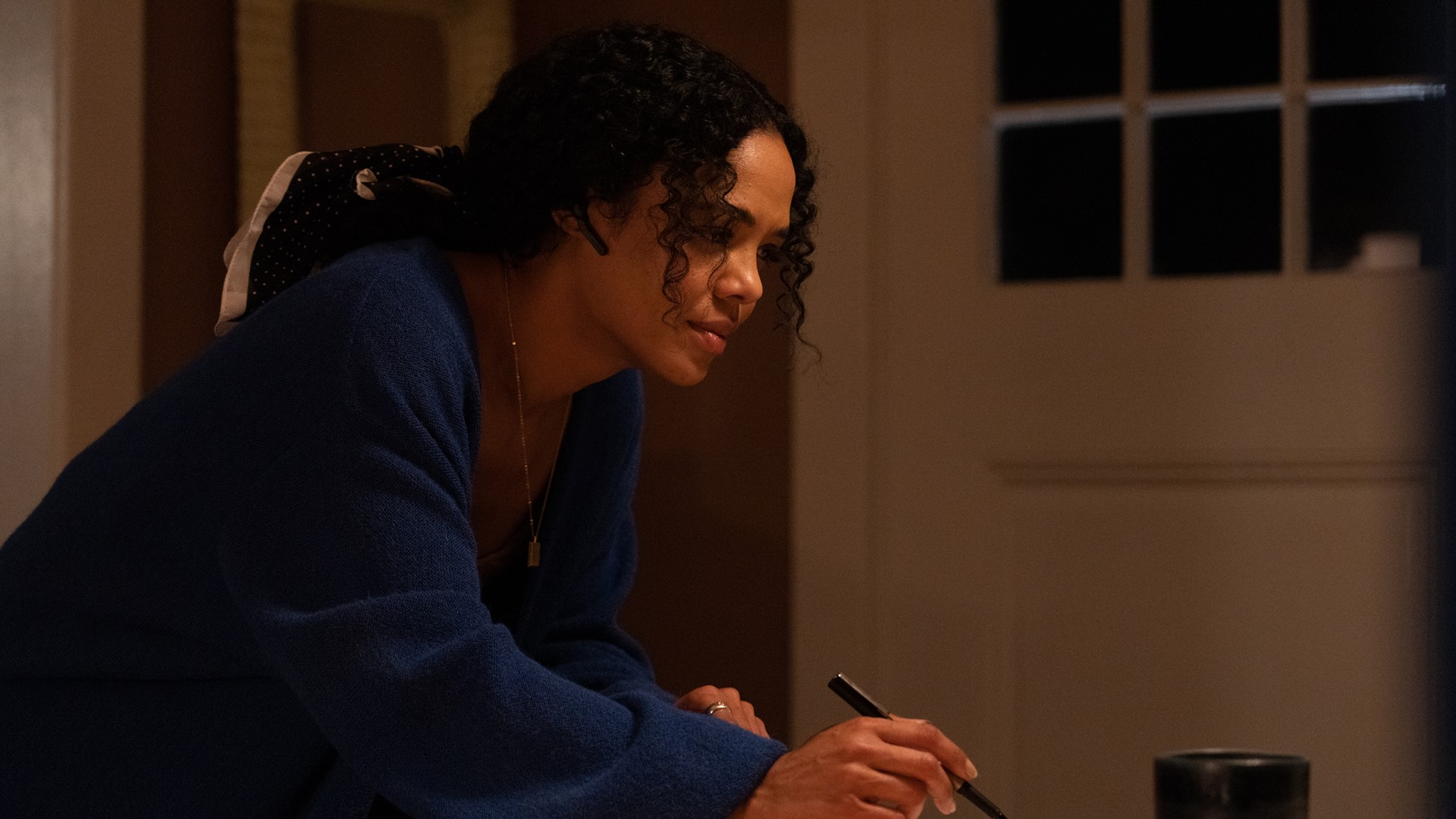Maybe it’s because it’s so associated with one of the most famous actors that ever lived in Robert De Niro, but Tribeca has always felt like a comfortable home for performers-turned-directors. Two of the best of their generation, Steve Buscemi and Michael Shannon, came to the fest this year with feature-length dramas that reflect on their deep empathy and fascination with the human condition. Both projects will be a bit too indie theatrical for wide audiences, but they are interesting chapters in the legacy of their directors and about what they say about Buscemi and Shannon as creatives. In films like “Trees Lounge” and “Take Shelter,” these performers have sought to understand people with life experiences other than their own. Both of their Tribeca films are about understanding, and both succeed to varying degrees.
Buscemi’s “The Listener” stars Tessa Thompson, and like “Locke,” it’s a film wherein its star will be the only face you see. In this chamber piece, she plays Beth, a helpline volunteer who spends her nights listening to the problems of others. The film opens with the start of her shift and closes when it ends. In between, Beth receives random calls, and she mostly just listens. Alessandro Camon’s script clearly intends to unpack mental health issues in this country, but there’s also an element that makes “The Listener” feel distinctly like a Covid-era film. For so long, we were divided, locked down in homes, and so many people needed someone as generous as Beth on the other end of the line.
Thompson nails the role of Beth, conveying the kind of charitable soul that would do this kind of work every night merely through the tone of her voice. Listening is an underrated trait in a performer—even some greats often look like they’re waiting for their cue instead of actually listening to another character—and this part is harder than it looks. We believe Beth is hearing these stories for the first time and responding with a combination of her training and instinct. Thompson is a phenomenal actress, and this is just further proof. You may recognize some of the voices on the other end, too, including Logan Marshall-Green, Rebecca Hall (a little “Passing” reunion!), Jamie Hector, and Alia Shawkat. (Oren Moverman co-produced, and one can sense the empathetic touch of the director of “The Messenger” here too.)
The structure of “The Listener” makes it inherently overwritten at times. It has to be to maintain its concept of interesting calls for a feature run time. (The truth is most callers wouldn’t be this well-spoken or concise, I imagine.) But while “The Listener” has the feel of a one-act play, that’s easily forgiven when the performer on the stage is this refined, and the filmmaking here is solid without ever being showy. One gets the sense that Buscemi himself is listening. And he truly hopes that more people will do the same.

There’s also an aspect of listening in Michael Shannon’s “Eric LaRue,” a film that will likely draw comparisons to “Mass” when it’s released. An adaptation of a stage play written post-Columbine by Brett Neveu in 2002, “Eric LaRue” remains depressingly timely, although one of its strengths is that it never feels like it’s trying to be a broad statement about high school shootings. It’s a character study about a mother and father who want to heal, grieve, and even find faith in very different ways after their son does the unimaginable. The final conversation strikes a few false chords, but I really admired this film in its subtle, quieter moments, carefully drawing two complex characters and letting a pair of excellent performers fully embody them.
The long-underrated Judy Greer gives her most dramatic role to date as Janice, the mother of Eric LaRue, a boy who, grown tired of the bullying his life, took a gun to high school and shot three of his classmates. She seems almost in a daze, unable to move from Point A to Point B. Who could blame her? Some situations in which Janice finds herself are a bit too manufactured—a customer insists she sell him a gun on her fast day back at work, for example—but I found Greer heartbreaking in her silence, able to convey a woman whose roadmap was torn up. She’s lost and directionless, unsure of the local pastor (Paul Sparks), who insists she meet with the mothers of the children that her son murdered.
While Janice struggles with the role of faith and forgiveness, her husband Ron (Alexander Skarsgard) pushes strong in the other direction, finding peace at a new church led by an engaging figure played by Tracy Letts. Another parishioner there is played by Alison Pill, who becomes such a support structure for Ron that she begins to represent temptation. While Janice seems almost to want to exist in her grief, to carry her burdens with her, Ron is seeking a way to shed them, the classic representation of Jesus as the way to remove that weight. It’s a fascinating dissection of how two people, especially a mother and father, can respond to something so horrific differently.
Skarsgard is fantastic here, so far away from his confident turn on “Succession” that they seem like the work of different performers. The whole cast works, including the supporters, but that shouldn’t be surprising. It makes sense that Michael Shannon is a quality director of performance. He’s spent his career dissecting characters, and he knows how to draw that out of his cast too. Some of Neveu’s script is overcooked, but I won’t remember that as much as the forlorn faces of Eric and Ron LaRue, lost in a world that’s getting increasingly violent and harder to navigate.












